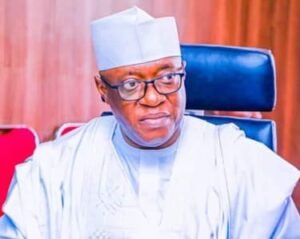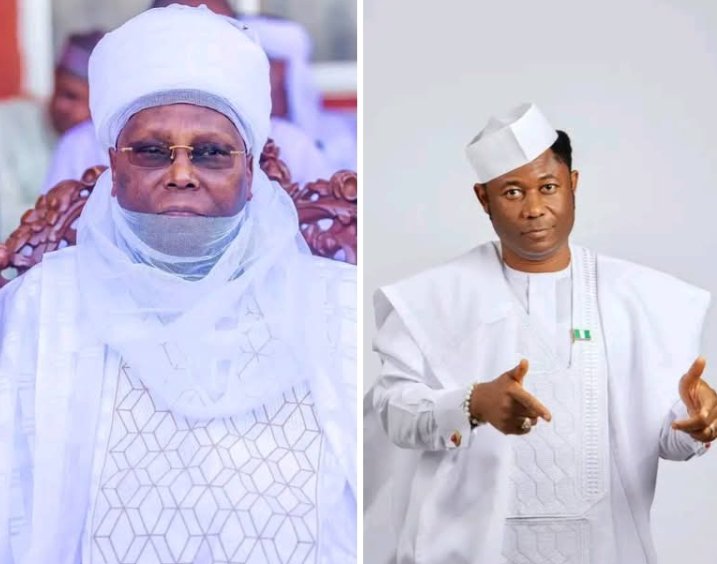
Accountant General: Why Barade must resign
By Kallamu Inusa
In Nasarawa State, a simmering controversy has erupted surrounding the State Accountant General, Musa Ahmed Mohammed, also known as Baraden Nasarawa.
Despite a clear directive from the state government in April 2024 that all political appointees with aspirations for elective office must resign or suspend political activities, the Accountant General remains in his position while evidence suggests he is actively involved in political campaigns for the 2027 governorship race.
This situation raises serious concerns about the integrity of public office and the importance of adhering to ethical standards in governance.
The state government’s circular, issued by the Secretary to the State Government, was intended to prevent exactly the kind of situation now unfolding. It explicitly required political appointees to choose between their current roles and early political activities.
However, despite this directive, there are reports of campaign billboards featuring the Accountant General appearing across the state, and allegations of political meetings being held on his behalf.
These actions suggest a disregard for the government’s directive and create a perception of conflict of interest. A group, the Nasarawa State Transparency, Accountability and Good Governance Group has expressed concern that such activities compromise the neutrality required of someone in such a sensitive financial position .
Some supporters of the Accountant General argue that constitutional provisions allow public servants to participate in politics, citing sections of the 1999 Constitution and the Electoral Act which specify that resignation is only required 30 days before an election. They claim that the billboards and political activities are the work of supporters, not directly orchestrated by the Accountant General himself.
However, this argument overlooks the specific directive issued by the Nasarawa State Government for its appointees, which goes beyond the minimum constitutional requirements to ensure propriety and avoid conflicts of interest during governance.
A crucial aspect of this debate centers on the nature of the Accountant General’s position. Contrary to some claims that he is a civil servant with political rights, the role of Accountant General is typically a political appointment.
This distinction is important because political appoinees serve at the pleasure of the executive and are expected to maintain a higher degree of loyalty to the administration’s agenda. The controversy echoes a similar situation at the federal level where the status of the Accountant General of the Federation was questioned, highlighting how such roles are generally considered political appointments rather than civil service positions.
The moral dimension of this situation cannot be overlooked. Even if the Accountant General has not formally declared his aspiration, the appearance of favoritism and the use of office for political advantage can undermine public trust in government institutions.
There are questions about the source of funding for the extensive political campaigns being conducted in his name, with concerns raised about whether state resources might be improperly utilized.
While these allegations require proper investigation, the very fact that they are being made seriously damages the credibility of the office he holds.
The case of another political appointee, Dr. Imam Muhammad Ali, who resigned from his position as Senior Special Assistant to pursue his political ambition, stands in stark contrast to the Accountant General’s approach.
This selective adherence to the government’s directive creates an impression of unequal application of the rules, which can foster discontent and cynicism among both government officials and the public.
Another group, the Wali Vanguard Association has also petitioned Governor Abdullahi Sule over this apparent selective enforcement, warning that it could undermine public confidence in the government.
At its core, this issue is about maintaining the integrity of public office and ensuring that those responsible for managing state resources are not distracted by political ambitions. The office of the Accountant General demands complete neutrality, professionalism, and strict adherence to ethical standards.
When the holder of such office becomes embroiled in political activities, it creates a conflict between personal interests and public duties that can compromise decision-making and proper oversight of state finances.
The people of Nasarawa State deserve a government that operates with transparency and accountability, where rules apply equally to all appointees and where public offices are not used as platforms for political advancement.
By resigning from his position, the Accountant General would demonstrate respect for the government’s directive, uphold the integrity of his office, and allow for a clear separation between his current responsibilities and his political aspirations.
This honourable gesture would help preserve public trust in government institutions and ensure that the management of state finances remains beyond any suspicion of impropriety or political motivation.
While every citizen has the right to participate in the political process, those holding sensitive government positions must exercise this right with careful consideration for the ethical implications and potential conflicts of interest.
The situation in Nasarawa State presents an important test for governance standards and the principle that rules should apply equally to all officials. Addressing this matter appropriately would strengthen democratic institutions and demonstrate a commitment to ethical leadership in the state.
Inusa writes from Lafia, Nasarawa State





